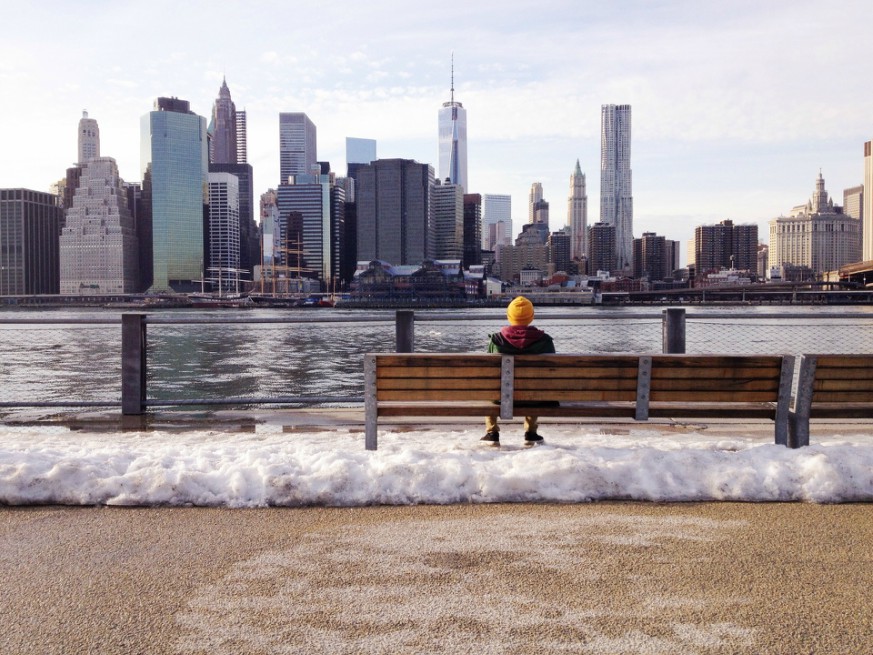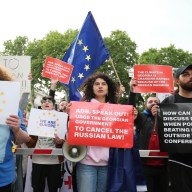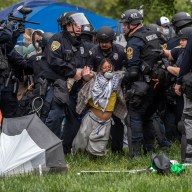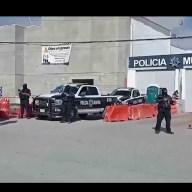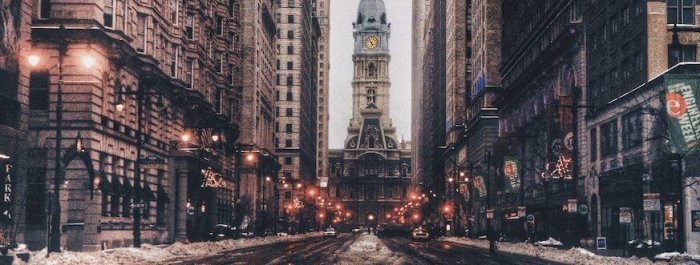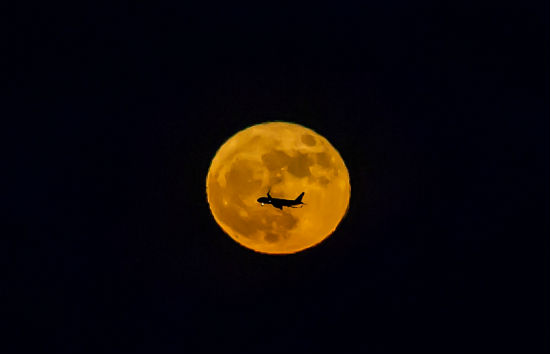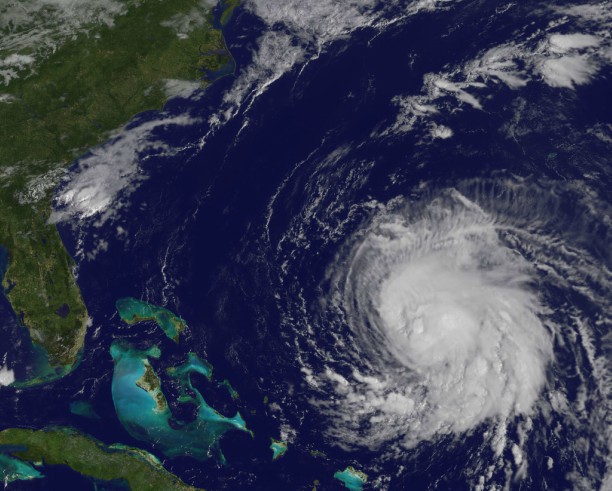If you’re already over the bitterly cold weather that accompanied the dawn of 2018, you may want to brace yourself. It’s going to be here for at least the next seven days.
According to the National Weather Service, below-freezing temperatures are expected to remain throughout the New York City region until Monday, when we should see a high near 40, which will likely feel downright balmy after what’s expected for the rest of this week.
Tuesday night will be clear with a high near 16. Wednesday will see the week’s highest temperature of 31 degrees during the day before dropping to 25 at night, with snow after 1 a.m., though the NWS said accumulation should be less than 1 inch.
Snow is also likely on Thursday, which will have a blustery high near 28 before dropping to about 10 degrees at night.
Friday will be breezy and cold with a high near 14 during the day and a low of 4 at night. Saturday will be relatively the same, with an expected high near 12 and a low near 6.
Am I just cold or do I have hypothermia?
While many of us shiver, shake and display “I’m-so-cold” dramatics in weather such as this, extreme cold is no laughing matter and can result in severe health issues, like hypothermia and frostbite.
In fact, four people died over the weekend due to these low temperatures, including two men who were believed to have frozen to death in Milwaukee, Reuters reported.
So what can you do to avoid — or treat — hypothermia or frostbite? Here are some tips from the Centers for Disease Control and Prevention:
• Dress appropriately
While it’s ideal to stay indoors as much as possible, that’s not feasible for everyone, so be sure to cover your nose, ears, toes, cheeks, chin and fingers, which are all susceptible to frostbite, in dry, warm clothing, the CDC urges.
This means wearing a scarf or knit face mask, a hat, mittens or gloves, layers and water-resistant boots and jackets.
• Know the signs
Because frozen tissue is numb, you may not realize you have frostbite, so be mindful of skin redness or pain and keep an eye out for white or grayish-yellow skin areas, skin that feels “unusually firm or waxy” and numbness, the CDC warns.
While hypothermia can occur during extreme cold, it can also affect someone who may become chilled after being out in rain or in cold water, or by sweating in temperatures above 40, so watch out for symptoms like shivering, exhaustion, confusion, fumbling hands, memory loss, slurred speech and drowsiness in adults. Symptoms for infants include bright red or cold skin and very low energy.
• When to seek help
If your temperature, or someone else’s, dips below 95 degrees, “get medical attention immediately,” the CDC said. Get to a warm room and replace any wet clothes with layers of dry clothing and blankets.
While you can put areas of your skin that may have frostbite in warm-to-the-touch water, avoid walking on frostbitten toes and feet, and use a fireplace, heat lamp, radiator or stove to warm, as well as heating pads or electric blankets. Do not rub or massage areas with frostbite.
• What to do if you have no heat in your apartment
If your home has no heat or hot water, you should contact your super, landlord or building manager immediately. If it is not resolved, file a complaint via 311. New Yorkers can also file a heat-related complaint for non-residential buildings including senior centers, drug treatment facilities, private schools, daycares and government buildings.
If you live in a NYCHA building, you can contact its Customer Contact Center at 718-707-7771 or use the MyNYCHA app. The agency said in a tweet that it increased staff in both its call center and in developments with “chronic heat problems.”
[UPDATE 1] The extreme cold weather snap hitting New York City is causing @NYCHA to experience a large number of heat complaints. Residents should call the Customer Contact Center at 718-707-7771, OR use the MyNYCHA app or web, to report heat complaints. pic.twitter.com/mZd22xiMIX
— NYCHA (@NYCHA) January 2, 2018
[UPDATE 2] Our residents deserve safe, warm homes, so we have increased the number of staff working our Customer Contact Center, at developments with chronic heat problems, & we have additional heating plant techs working over this weekend to address heat issues as they arise.
— NYCHA (@NYCHA) January 2, 2018
“It really is because of the severity,” General Manager Michael Kelly told Metro of the 40 staffers added this past weekend. Most of the complaints center on residents not having heat and/or hot water, he said.
If you’re waiting for such an issue to be resolved, the FDNY urges residents to be careful using electric space heaters and electric blankets. Kerosene or propane heaters are illegal to use in the city.

